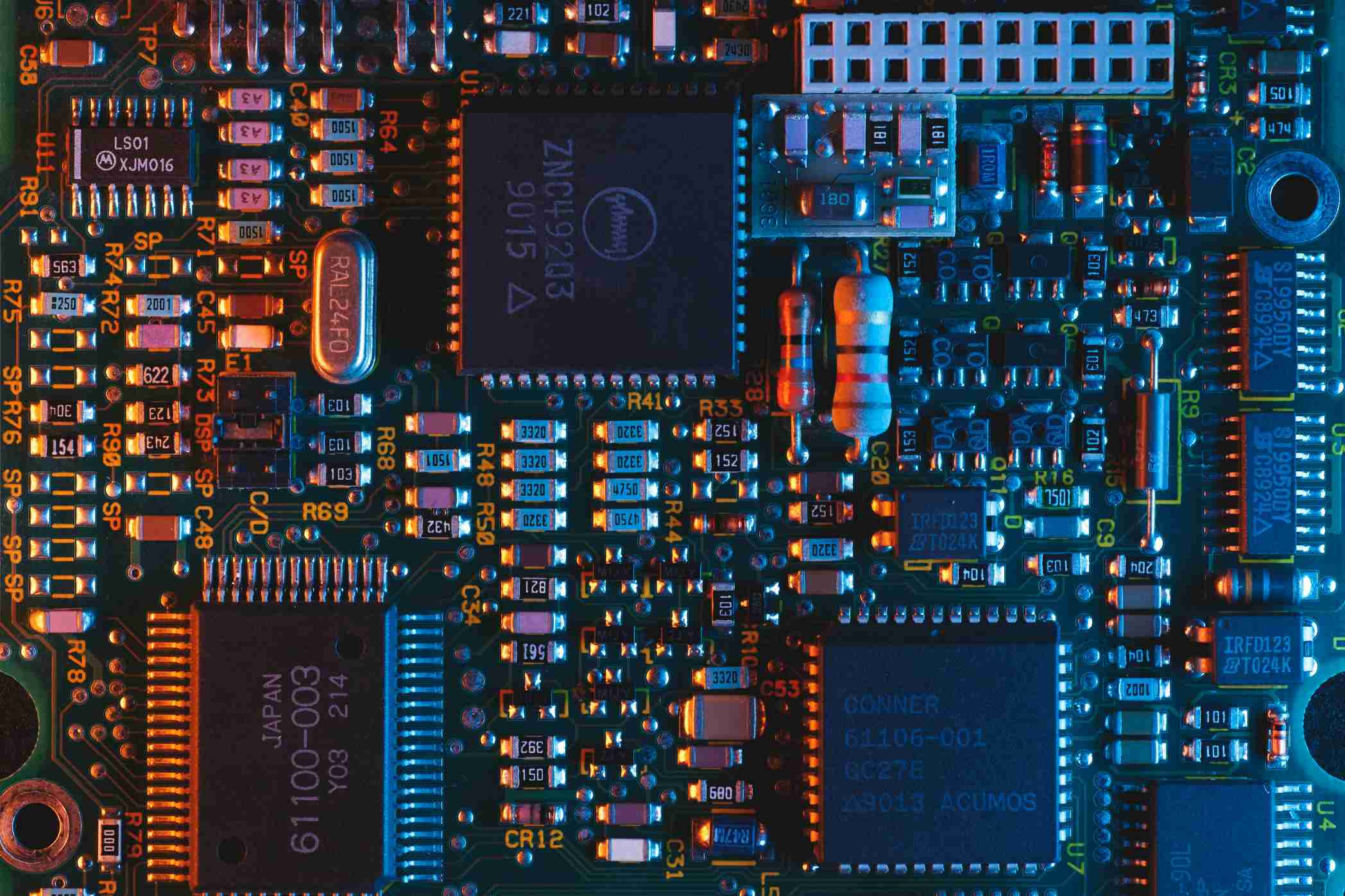The Future of Web3 in Digital Rights and Copyright Protection Jobs
An exploration of how Web3 technologies are creating new solutions for digital rights management and copyright protection, and the career opportunities.

In the digital age, protecting copyright and managing digital rights has become incredibly challenging. The ease with which digital content-images, music, articles, and videos-can be copied and distributed has created a constant battle for creators and rights holders. Web3, with its focus on verifiable ownership and transparent ledgers, offers a new and powerful set of tools to address these challenges.
This is creating a new career path at the intersection of law, technology, and content: the Web3 Digital Rights Specialist. These are the professionals who are designing and implementing blockchain-based systems to manage and enforce copyright in the digital realm.
The Problem with Traditional DRM
Traditional Digital Rights Management (DRM) systems are centralized and often frustrating for users. They rely on proprietary software to restrict how you can use the content you've purchased, creating a poor user experience and a "walled garden" ecosystem.
The Web3 Solution: Ownership as a Primitive
Web3's approach is different. Instead of restricting access through centralized servers, it focuses on creating a transparent and verifiable record of ownership and usage rights on a public blockchain.
- NFTs as a Certificate of Ownership: Non-Fungible Tokens (NFTs) can serve as a provable, on-chain certificate of ownership for a piece of digital content. This creates a clear and immutable record of who owns the "original" or a licensed copy.
- Smart Contracts for Automated Licensing: Smart contracts can be used to create programmable licenses. A creator could embed the terms of a license directly into the NFT's smart contract. For example, a contract could state that the owner of the NFT has the right to use an image for non-commercial purposes and could automatically handle royalty payments.
- On-Chain Registries: A blockchain can act as a global, decentralized registry for creative works. A creator could register their work by hashing it and recording the hash on-chain with a timestamp, creating immutable proof of when their work was created.
New Career Opportunities
- IP and Copyright Lawyer (Web3 Specialization): Lawyers who understand how to apply traditional copyright law to this new technological landscape are in high demand. They are needed to draft the legal language for smart contract-based licenses and to navigate the complex legal questions of on-chain IP.
- Digital Rights Protocol Developer: The engineers who are building the core protocols and platforms for on-chain rights management.
- Content Licensing Manager: Professionals who work with creators and companies to license their content using these new Web3-native tools.
The application of Web3 to digital rights management is still in its early days, but it holds the promise of a more transparent, efficient, and creator-centric system. It's an exciting field for professionals who are passionate about protecting the rights of creators in the digital age.
The Web3 Opportunity
The Web3 sector is experiencing explosive growth, with demand far outpacing supply for qualified talent. Unlike traditional tech, Web3 offers unique advantages: higher compensation, equity opportunities, fully remote roles, and the chance to work on transformative technology.
Market Context
The Web3 job market has fundamentally different dynamics than Web2:
Compensation: Web3 roles typically pay 20-40% higher than equivalent Web2 positions, with significant bonus and equity components.
Remote-First Culture: Most Web3 organizations operate fully or primarily remote, offering flexibility that's rare in traditional tech.
Growth Trajectory: Career progression happens faster in Web3 due to rapid company scaling and talent shortage.
Equity Upside: Token and equity packages are standard, offering significant wealth-building potential.
Step-by-Step Transition Strategy
Step 1: Build Web3 Knowledge Foundation
Spend 4-8 weeks learning blockchain fundamentals. Understand:
- How blockchain technology works
- Different blockchain architectures
- Smart contracts and their use cases
- DeFi, NFTs, and DAOs
- Current Web3 ecosystem and key players
Step 2: Learn Relevant Skills
Depending on your target role:
- Engineers: Solidity, JavaScript/TypeScript, Web3 libraries (ethers.js, web3.js)
- Product Managers: Token economics, protocol governance, user growth in Web3
- Business Development: Market analysis, partnership strategy, regulatory landscape
- Community/Operations: Community building, Discord management, governance
Step 3: Build Your Portfolio
Create tangible proof of your Web3 expertise:
- Complete open-source contributions to Web3 projects
- Build a small DApp or smart contract
- Write about Web3 topics on Medium or Twitter
- Contribute to DAOs or community projects
- Participate in hackathons
Step 4: Network in Web3
The Web3 community is incredibly accessible:
- Join Discord communities of projects you're interested in
- Attend Web3 conferences (Consensus, Devcon, ETHDenver)
- Engage on Twitter/X with Web3 builders and thought leaders
- Participate in governance forums
- Join local Web3 meetups
Step 5: Apply Strategically
Target roles that leverage your existing expertise plus new Web3 knowledge:
- If you're a backend engineer, look for blockchain infrastructure roles
- If you're a PM, look for protocol product roles
- If you're in sales/business, look for Web3 business development
Real-World Success Stories
Developer to Smart Contract Engineer
Alex, a 5-year backend engineer at a FAANG company, spent 3 months learning Solidity while maintaining his day job. He contributed to an open-source protocol, caught the attention of a major DeFi project, and transitioned with a 50% salary increase and significant equity.
Product Manager in Web3
Jessica, a PM from traditional finance, leveraged her domain expertise in DeFi. Her understanding of financial products combined with Web3 technology made her incredibly valuable. She found a role at a leading DeFi protocol within 4 weeks.
Career Changer Success
Marcus left his corporate job to focus on Web3 for 6 months. Through consistent learning, networking, and portfolio building, he landed a role leading Developer Relations at a major blockchain platform, with compensation far exceeding his previous role.
Web3-Specific Challenges
Volatility Risk: The sector's volatility can impact job stability. Diversify and build emergency funds.
Regulatory Uncertainty: Regulations are still evolving. Choose projects with strong legal teams.
Due Diligence: Not all projects are legitimate. Research thoroughly before joining.
Learning Curve: The learning curve is steep, but the community is incredibly supportive.
FAQ
Q: Do I need to be a blockchain expert to work in Web3? A: No. Companies need diverse skills-marketing, design, operations, business development. Your existing expertise is valuable; you just need to learn the Web3 context.
Q: How much can I earn in Web3? A: Significantly more than Web2 equivalents. Base salaries are higher, plus signing bonuses, equity, and token packages. Realistic expectation: 30-60% increase from Web2 roles.
Q: Is it risky to transition to Web3? A: Like any emerging industry, there's risk. Mitigate by joining established, well-funded projects with strong teams and track records. Avoid speculation; focus on building.
Q: How long does the transition take? A: 2-6 months depending on your background and effort level. Engineers and product managers transition faster due to transferable skills.
Q: What if the crypto market crashes? A: The fundamental technology and use cases remain valid. Bear markets often create better opportunities-teams can focus on building rather than hype-driven growth.
Key Takeaways
- Web3 offers significant compensation, growth, and impact opportunities
- Transition takes 2-6 months with dedicated effort
- Your existing skills are valuable; focus on learning Web3 context
- Networking and portfolio building matter more than certifications
- Join established projects to mitigate risk
- The community is incredibly supportive and accessible


